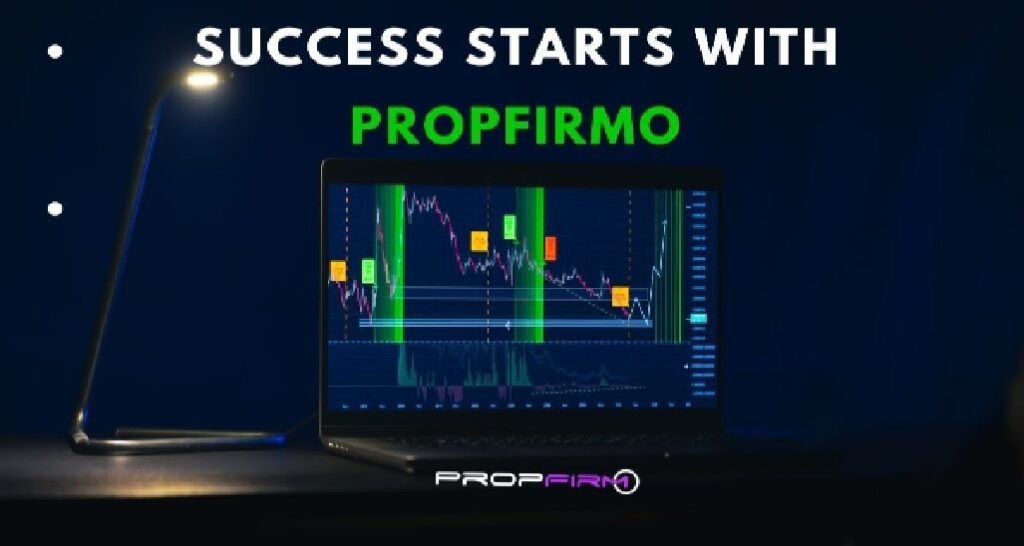The terrain of financial markets is changing, giving investors several chances for risk control and portfolio expansion. For individuals looking for expert market involvement and regular profits among the several possible investment partnerships, proprietary trading firms have become especially interesting companions.
Professional Trading Infrastructure
For effective trading activities, modern financial markets need innovative technologies and strong infrastructure. Modern trading platforms, sophisticated risk management systems, and committed technical support teams are kept by prop firms. Typical benefits that individual investors usually cannot obtain on their own are accurate execution, real-time market analysis, and thorough portfolio monitoring made possible by these tools. Direct market access and co-location services are part of the advanced infrastructure as well; they help to lower latency and enhance trade execution quality.
Beyond simple market access, these companies substantially fund bespoke algorithmic trading systems capable of microsecond processing of enormous volumes of market data, usually including backup data centres, many internet service providers, and extra power supply; their infrastructure guarantees ongoing trading activities. With automated compliance guaranteeing regulatory conformance, therefore providing a high entrance hurdle, they utilise specialised technology, low-latency networks, and sophisticated order management for multi-venue trading.
Risk Management Excellence
Trading companies shine in using advanced risk management strategies that guard cash and maximise possible rewards. These companies use portfolio correlation analysis, stop-loss systems, and position restrictions among several layers of risk management. Expert risk managers track market exposure and modify plans based on evolving market circumstances. This methodical approach to risk management preserves cash during erratic times and keeps the capacity to seize possibilities in several market conditions. Usually including real-time stress testing of portfolios against historical and hypothetical market situations, the risk management system helps to enable fast adaptation to changing market dynamics.
Risk teams do scenario studies across several asset classes and compute Value at Risk (VaR) measures using sophisticated statistical models. These companies also have strong margin management systems and apply advanced counterparty risk assessment techniques to stop account breaches. They guarantee regulatory compliance, control operational risks via disaster recovery and cybersecurity, and change risk models to fit changing market conditions.
Market Expertise and Research Capabilities
Professional trading partners possess deep market knowledge across multiple asset classes and trading strategies. Their research departments analyse market trends, evaluate trading opportunities, and develop proprietary trading algorithms. This expertise extends beyond traditional market analysis to include alternative data sources, machine learning applications, and sophisticated quantitative models. The combination of experienced traders and advanced analytical capabilities enables these firms to identify and exploit market inefficiencies effectively.
These organisations maintain specialised teams dedicated to specific market segments, from global macro strategies to high-frequency trading approaches. Their research capabilities often include dedicated data science teams that process and analyse vast amounts of market and alternative data, including satellite imagery, social media sentiment, and supply chain metrics. The firms typically employ quantitative researchers with advanced degrees in mathematics, physics, and computer science who develop and optimise trading models using cutting-edge statistical techniques. They provide historical market data, back-testing, and collaborate with academia to stay at the forefront of trading innovation and strategy development.
Capital Efficiency and Technology Integration
Trading firms optimise capital deployment through advanced portfolio management techniques and sophisticated technology integration. Their systems enable efficient margin utilisation, cross-asset netting, and automated position management. Using these features helps partners to have lower operational expenses and better capital efficiency. The integration of artificial intelligence and machine learning algorithms further enhances trading execution and risk management processes, leading to more consistent performance across various market conditions. These organisations employ sophisticated portfolio optimisation techniques that consider multiple factors, including transaction costs, market impact, and liquidity constraints.
Their automated systems continuously monitor and rebalance positions across different market venues and time zones, ensuring optimal capital allocation 24/7. The technology stack typically includes advanced order routing systems that can split large orders across multiple venues to minimise market impact and achieve better execution prices. These firms use smart order routing, advanced collateral management, and treasury systems to optimise margins, funding costs, and liquidity across global markets.
Conclusion
Investor relationships with prop trading companies give access to sophisticated infrastructure, risk management, experience, and efficient capital deployment as markets become more complicated and tech-driven. This makes them more important for institutional-grade trading and performance.

